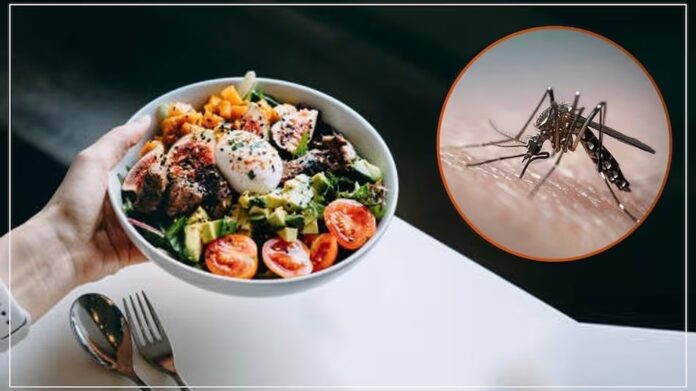A Dengue diet is a dietary plan designed to support individuals who are suffering from Dengue fever, a viral illness transmitted by mosquitoes. Dengue fever can cause symptoms such as high fever, severe headaches, joint and muscle pain, rash, and in some cases, severe complications like Dengue hemorrhagic fever or Dengue shock syndrome. While there is no specific antiviral treatment for Dengue, proper nutrition plays a crucial role in helping the body recover and manage the symptoms. Here’s an explanation of the key components of a Dengue diet:
- Hydration: Staying well-hydrated is of utmost importance for Dengue patients because the illness can lead to dehydration. Drink plenty of fluids, including water, clear soups, herbal teas, and oral rehydration solutions (ORS) to maintain proper hydration levels.
- Soft and Easily Digestible Foods: During the acute phase of Dengue fever, many individuals experience nausea, vomiting, and reduced appetite. Therefore, it’s recommended to consume soft, easily digestible foods that are gentle on the stomach. Examples include:
- Rice porridge or congee: A simple rice soup that is easy to digest.
- Boiled or steamed vegetables: Vegetables that are not too fibrous and are cooked until soft.
- Plain rice or pasta: Avoid spicy or highly seasoned dishes.
- Bland fruits: Bananas and apples are good options as they are easy on the stomach.
- Oatmeal or plain toast: These are mild options for breakfast.
- Protein-Rich Foods: While it’s important to focus on easily digestible foods, Dengue patients should also ensure they get enough protein to support the body’s healing process. Lean sources of protein such as boiled eggs, tofu, or well-cooked, lean meats like chicken or fish can be included.
- Avoid Spicy and Greasy Foods: Spicy, greasy, or heavily seasoned foods can irritate the digestive system and worsen nausea or vomiting. It’s best to avoid these types of foods until your appetite and digestion have improved.
- Vitamin and Mineral Supplements: Some individuals with Dengue may experience a decrease in platelet count, which can lead to bleeding tendencies. To support platelet production and overall recovery, doctors may recommend vitamin and mineral supplements, particularly vitamin C, vitamin K, and calcium. However, always consult a healthcare professional before taking supplements.
- Limit Alcohol and Caffeine: Alcohol and caffeine can contribute to dehydration, which should be avoided during Dengue fever. Stick to hydrating beverages like water, herbal teas, and ORS.
- Frequent Small Meals: Instead of three large meals, consider having frequent small meals throughout the day. This can help manage nausea and maintain energy levels.
- Remember that a Dengue diet is not a cure for the disease but rather a way to support the body’s recovery and manage symptoms. It’s essential to consult a healthcare provider for proper diagnosis and guidance on dietary choices during Dengue fever, as individual cases can vary in severity and nutritional needs.



